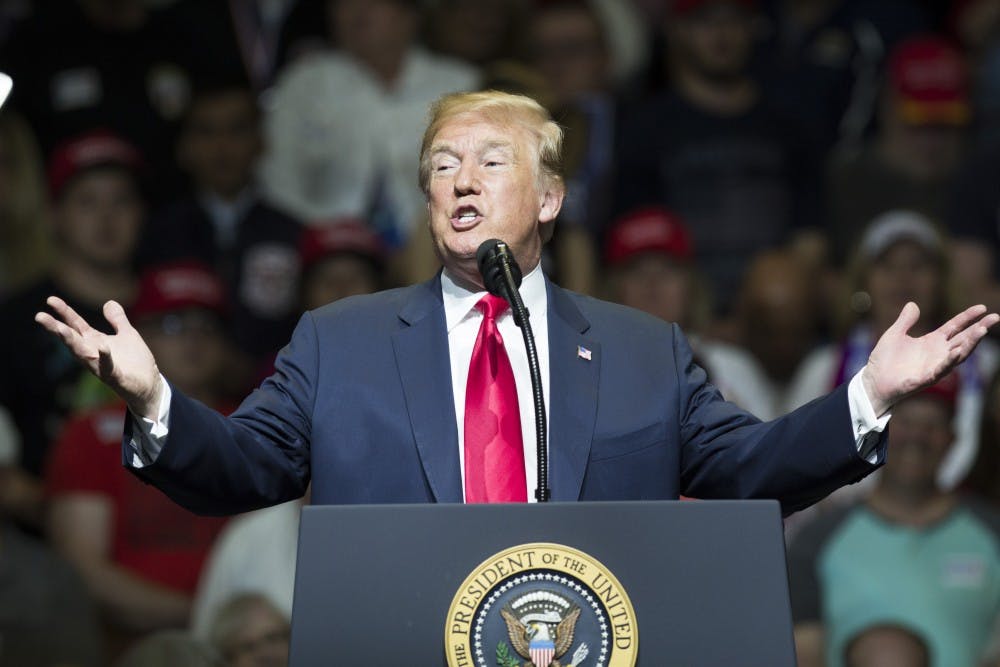After a whirlwind day of diplomacy, meetings and handshakes, President Donald Trump signed a bare-bones agreement with North Korean dictator Kim Jong-un on Tuesday, June 12.
The agreement is a bit more than a page in length and offers a lot of optimism, but little substance in the conversation surrounding denuclearization on the Korean peninsula.
But while the agreement was a mere skeleton, the summit itself was choreographed and focused on optics, much like a dance performance. Alternating North Korean flags were hung with U.S. flags. Both leaders took part in a slow waltz-like, red carpet walk-up which ended with a historic meeting and handshake between Trump and Kim.
North Korea reconfirmed its April 27 statement where North Korean officials claimed they were working towards denuclearization; both governments promised to work for peace and to work towards recovering the remains of those soldiers who died in the Korean War back in 1950-1953.
However, the signed document doesn't specify how long that denuclearization process might take or how the United States might verify it, if it actually happens. Some experts speculated the process could take as long as 15 years for full-scale denuclearization to occur.
Lee Feinstein, former U.S. ambassador of Poland and IU's dean for the School of Global and International Studies, said there were no deputies or sub-cabinet officials meeting to discuss technical details or specifics in preperations for the meeting, which is one of the more worrisome aspects of this arrangement.
However, Feinstein emphasized his hope the meeting, while unorthodox in how it was set up, is an important first step in a "constructive process of credible and steady movement towards denuclearization of the Korean peninsula," especially in light of past efforts to change the trajectory of the North Korean regime.
"Basically, what we have right now is a statement of general intent," Feinstein said. "The good news is that statement of general intent can guide and create kind of a framework and agenda for more work moving forward. None of the detailed work has begun yet."
Trump also announced the U.S. will cease military exercises with South Korea which have been conducted annually since 1970. The president called the exercises 'provocative' and said by stopping the U.S. could save money.
Despite these issues, Trump tweeted before the summit that excitement was in the air. After meeting Kim, Trump said their meeting had been 'honest, direct, and productive."
This optimistic statement comes just a day after Trump called Canadian Prime Minister Justin Trudeau "meek and mild" at the annual G7 summit, where Trump caused havoc among long-time U.S. allies by standing firm about U.S. tariffs and sanctions on imported items like steel and aluminum.
Those sanctions would directly affect both South Korea and Japan, which has a bilateral defense treaty with the U.S., and this added tension does not help negotiations with North Korea.
"You can't do these things on your own," Feinstein said. "You want to maintain solidarity among your allies."
The summit with Kim was something no other U.S. president had been willing to provide before and is something North Korea has wanted for some time, Feinstein said, and it's probably the biggest prize the U.S. could claim, without getting much commitment in return.
Regimes change all the time, Feinstein said, and the U.S. needs to be open to the idea that North Korea is willing to change without being naive about North Korea's intentions.
"The stakes are so high that the most important thing to do is support efforts to avoid unpredictable, impetuous actions," Feinstein said.




